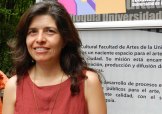 The OHCHR has posted the call for applications for the newly-created post of Special Rapporteur on the right to privacy in the digital age, discussed in IntLawGrrls posts by Lisl Brunner here and here. As Marko Milanovic has noted, “Bearing in mind the wide scope of the right to privacy, this SR is sure to be a mega-mandate.”
The OHCHR has posted the call for applications for the newly-created post of Special Rapporteur on the right to privacy in the digital age, discussed in IntLawGrrls posts by Lisl Brunner here and here. As Marko Milanovic has noted, “Bearing in mind the wide scope of the right to privacy, this SR is sure to be a mega-mandate.”
Deadline for applications: 30 April 2015
Mandate of this rapporteurship: Set out in HRC Resolution A/HRC/28/L.27, available in all UN languages here.
Application procedure: Through the special procedures on-line application system, here.
Key qualifications have been suggested by the following civil society organisations to help identify and reach out to highly qualified and independent candidates for this post: Access, American Civil Liberties Union, Amnesty International, Article 19, Association for Progressive Communications, Electronic Frontier Foundation, International Commission of Jurists, Privacy International.
Here are just a few of the individuals who have been doing impressive work in this field who come to mind as potential candidates:
 Malavika Jayaram, a technology lawyer and a Fellow at the Centre for Internet and Society in Bangalore, India; recently a Fellow at Harvard’s Berkman Center for Internet and Society, and Visiting Scholar at the Annenberg School for Communication, University of Pennsylvania, where she worked on freedom of speech, internet policy and privacy issues. Previously based in London with the global law firm Allen & Overy in the Communications, Media & Technology group, and with Citigroup as Vice President and Technology Counsel. One of ten Indian lawyers selected for The International Who’s Who of Internet e-Commerce & Data Protection Lawyers directory. Amongst other things, her bios indicate, “she has been looking at the evolution of big data and e-governance projects in India – particularly the world’s largest biometric ID project – and their implications for identity, freedom, choice and informational self-determination.”
Malavika Jayaram, a technology lawyer and a Fellow at the Centre for Internet and Society in Bangalore, India; recently a Fellow at Harvard’s Berkman Center for Internet and Society, and Visiting Scholar at the Annenberg School for Communication, University of Pennsylvania, where she worked on freedom of speech, internet policy and privacy issues. Previously based in London with the global law firm Allen & Overy in the Communications, Media & Technology group, and with Citigroup as Vice President and Technology Counsel. One of ten Indian lawyers selected for The International Who’s Who of Internet e-Commerce & Data Protection Lawyers directory. Amongst other things, her bios indicate, “she has been looking at the evolution of big data and e-governance projects in India – particularly the world’s largest biometric ID project – and their implications for identity, freedom, choice and informational self-determination.”
 Carolina Botero, a digital activist and lawyer with the Karisma Foundation in Colombia, a “civil society organization dedicated to supporting and spreading the good use of technologies in digital environments, social processes and national public policies and the region, from the perspective of protection and promotion of human rights.” Botero leads the foundation’s Law, Internet and Society group, “a multidisciplinary group that works for a responsible and thoughtful use of information and communication technology in the various sectors of society, in light of the role played by the legal framework in the dynamics of the internet.”
Carolina Botero, a digital activist and lawyer with the Karisma Foundation in Colombia, a “civil society organization dedicated to supporting and spreading the good use of technologies in digital environments, social processes and national public policies and the region, from the perspective of protection and promotion of human rights.” Botero leads the foundation’s Law, Internet and Society group, “a multidisciplinary group that works for a responsible and thoughtful use of information and communication technology in the various sectors of society, in light of the role played by the legal framework in the dynamics of the internet.”
 Nighat Dad, Director of the Digital Rights Foundation in Pakistan, which works “to support human rights, democratic processes and digital governance,” and “aims to strengthen protections for human rights defenders and women human rights defenders in digital spaces through policy advocacy and digital security awareness-raising.” A researcher and lawyer with extensive experience in cyber law, her focus is “not only on addressing Internet Governance issues related to Freedom of Expression but also on articulating civil society’s concerns over government policies that hamper citizens use of Information and Communication Technologies.” She has written on ICT issues experienced particularly by women; participated in the UN Internet Governance Forum; and is a member of the Women’s Networking Support Program of the Association for Progressive Communication.
Nighat Dad, Director of the Digital Rights Foundation in Pakistan, which works “to support human rights, democratic processes and digital governance,” and “aims to strengthen protections for human rights defenders and women human rights defenders in digital spaces through policy advocacy and digital security awareness-raising.” A researcher and lawyer with extensive experience in cyber law, her focus is “not only on addressing Internet Governance issues related to Freedom of Expression but also on articulating civil society’s concerns over government policies that hamper citizens use of Information and Communication Technologies.” She has written on ICT issues experienced particularly by women; participated in the UN Internet Governance Forum; and is a member of the Women’s Networking Support Program of the Association for Progressive Communication.